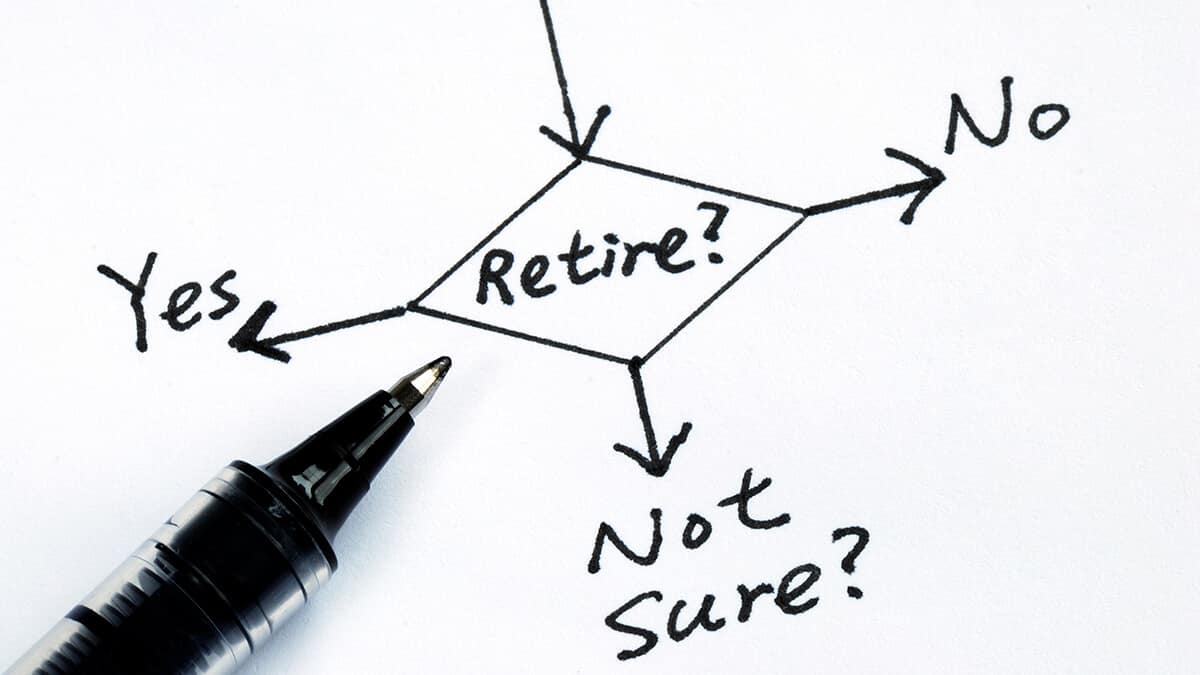In this guide
- 1. When can I access my super?
- 2. Can I access my super at 60 and still work?
- 3. Can I still make contributions into my super if I retire at 60?
- 4. What are the options for withdrawing my super benefit?
- 5. What are the tax implications of retiring at age 60?
- 6. How long does my retirement income need to last?
- 7. Can I get the Age Pension if I retire at 60?
- 8. Can I get a health card or seniors card if I retire at 60?
- 9. Can I start a transition-to-retirement income stream at 60?
- 10. How much super do I need to retire at 60?
For many people, when it comes to planning retirement, age 60 sounds like a good time to leave the workforce.
If that’s your plan, it’s important to ensure you understand the rules on accessing your super, how big your nest egg needs to be, the tax you might pay and any financial assistance you may be able to receive.
To help you take the leap into life after work, SuperGuide has put together a list of some of the common questions asked by people thinking about retiring at 60.
1. When can I access my super?
If you want access to all your super savings and are age 60 or older, you have three options:
- Resign from your employer (even your second job) after you turn age 60. You are then permitted to access all your super that has accumulated to that date, even if you are still working in another job or plan to return to work.
- If you left work before turning age 60, you can access your super if you declare that you never intend to return to the workforce for 10 hours a week or more.
- If you have never worked, you cannot leave the workforce as you were never employed, so you will need to wait until you turn 65 to access your super. The super regulations require you to have ended “an arrangement under which you were gainfully employed” to access your super account prior to age 65.
If you withdraw your super benefits once you reach 60, most people pay no tax on their retirement savings.
Do keep in mind though, if you retire at 60 and withdraw your super, you miss out on the benefits of compound interest and the tax benefits available if you were to leave your savings within the super system for longer. This can have a significant impact on how much income you have in later years.

Free eBook
Retirement planning for beginners
Our easy-to-follow guide walks you through the fundamentals, giving you the confidence to start your own retirement plans.
"*" indicates required fields
2. Can I access my super at 60 and still work?
Yes, it is possible to return to work after accessing super, but you do need to leave a job to trigger full release of your money.
The retirement condition of release permits full access to super for people who:
- Leave a gainful employment arrangement after their 60th birthday, or
- Are aged 60 or more and declare they have permanently retired from gainful employment after being gainfully employed at some time in the past.
Gainful employment is defined as paid employment for 10 or more hours a week.
If you’re leaving an employer after turning 60 and claiming your super, you can continue working in a second job or start a new job at any time.
Alternatively, if you declare you’re permanently retired to access your super, you can work in future if you change your mind. The declaration must be accurate at the time you make it (i.e. you must not be gainfully employed and must not intend to return to paid employment of 10 hours or more a week in future), but if you find retirement is not for you there is nothing preventing you from taking a job.
In either case, any super that accumulates from employer contributions that are made after you claimed your super will be preserved until you meet a condition of release again.
You can also start a transition-to-retirement income stream (TTR or TRIS) to access part of your super benefits while you continue working (see Question 9).
3. Can I still make contributions into my super if I retire at 60?
Yes.
2026 SMSF calendar
Our free calendar includes due dates for important documents plus suggested dates for trustee meetings and other strategic issues for your SMSF.
"*" indicates required fields
While you are aged under 75 you are free to make contributions into your super account.
Once you reach age 67 you are required to be ‘gainfully employed’ for at least 40 hours in a period of 30 consecutive days during the financial year in order to make personal tax-deductible super contributions.
4. What are the options for withdrawing my super benefit?
When you are granted full access to your super, you can choose to take a lump sum, an income stream or a combination of the two:
- Income stream (super pension or annuity) – If you decide to take a super income stream, you will receive a series of regular payments from your super fund. The benefits of super income streams include convenient regular income and tax-free investment earning.
- Lump sum – This is a single payment that withdraws some or all of your super. If you take a lump sum the money is no longer within the super system and, if you invest it, any investment returns received on the money will not be taxed as super savings. This means the concessional tax rate of 15% on your super account’s investment earnings will no longer apply. Instead, your investment returns will be taxed at your marginal tax rate, which could be as high as 45% (plus the Medicare levy).
5. What are the tax implications of retiring at age 60?
Super withdrawals after age 60 are tax-free unless you are a member of an untaxed super fund or receive a defined benefit pension above the annual defined benefit income cap ($118,750 in 2024–25).
6. How long does my retirement income need to last?
Once you can tap into your super, you’ll need those savings to last you for life. Australians are living longer and healthier lives than ever. To get a personalised estimate on how long your retirement could be, try the lifetime estimator calculator provided to SuperGuide members by Optimum Pensions.
7. Can I get the Age Pension if I retire at 60?
Not immediately, but you may become eligible when you turn 67.
In addition to the age requirement, whether you are eligible for an Age Pension depends on you being able to satisfy the Age Pension assets test, income test and residency requirements.
Use our Age Pension calculator to estimate how much you could be eligible to receive.
Supercharge your retirement

Get super and retirement planning tips and strategies with our free monthly newsletter.
"*" indicates required fields
8. Can I get a health card or seniors card if I retire at 60?
Retiring at 60 doesn’t prevent you from obtaining concession cards but does mean you may have some time to wait between retirement and qualifying for discounts.
The Commonwealth Seniors Health Card (CSHC) doesn’t become available until you turn 67. However, you may qualify for a Low Income Health Care Card in the meantime.
State-based concession cards are available from ages 60 to 65, depending on the state or territory you live in.
9. Can I start a transition-to-retirement income stream at 60?
Yes, if you can’t meet the retirement condition of release to gain full access to your entire balance, you have the option to start a transition-to-retirement income stream instead (known as a TTR or TRIS).
This type of income stream is a pension paid to you from the money you have saved in your super account while you are still working. A maximum of 10% of the pension’s balance can be withdrawn each financial year. In some circumstances it can be a good way to scale back your working hours and start enjoying your transition into retirement without reducing your income.
Starting a TTR can also allow you to salary sacrifice into your super account to save tax, while using your TTR income stream to supplement your salary so you can maintain your lifestyle.
You are eligible to start a TTR if you have turned 60 and are not yet 65. Once you have your 65th birthday, a TTR you still hold will convert to a retirement pension with no maximum payment and tax-free investment earnings unless you choose another option.
10. How much super do I need to retire at 60?
When you retire at 60, you could be spending 30 years or more in retirement, so you’ll need to create a retirement income stream designed to last a long time.
Start planning your retirement – for free

Access clear, independent guidance and tools that make it easier to plan with confidence and take control of your future with a free SuperGuide account.
Find out moreThe amount of super you will need to fund your retirement income depends on many factors, including:
- How many years you will spend in retirement
- Whether you are a couple or single
- How much you plan to spend each year
- Whether you own your home
- What assets or income you have outside super
- How much your investments earn
- Whether you are eligible for the Age Pension
- How much super you want to leave your dependants.
To generate a tailored personal calculation, try TelstraSuper’s Retirement Lifestyle Planner. It allows you to estimate the income your super balance will be able to generate, as well as any Age Pension you may be eligible for.

Leave a Reply
You must be logged in to post a comment.